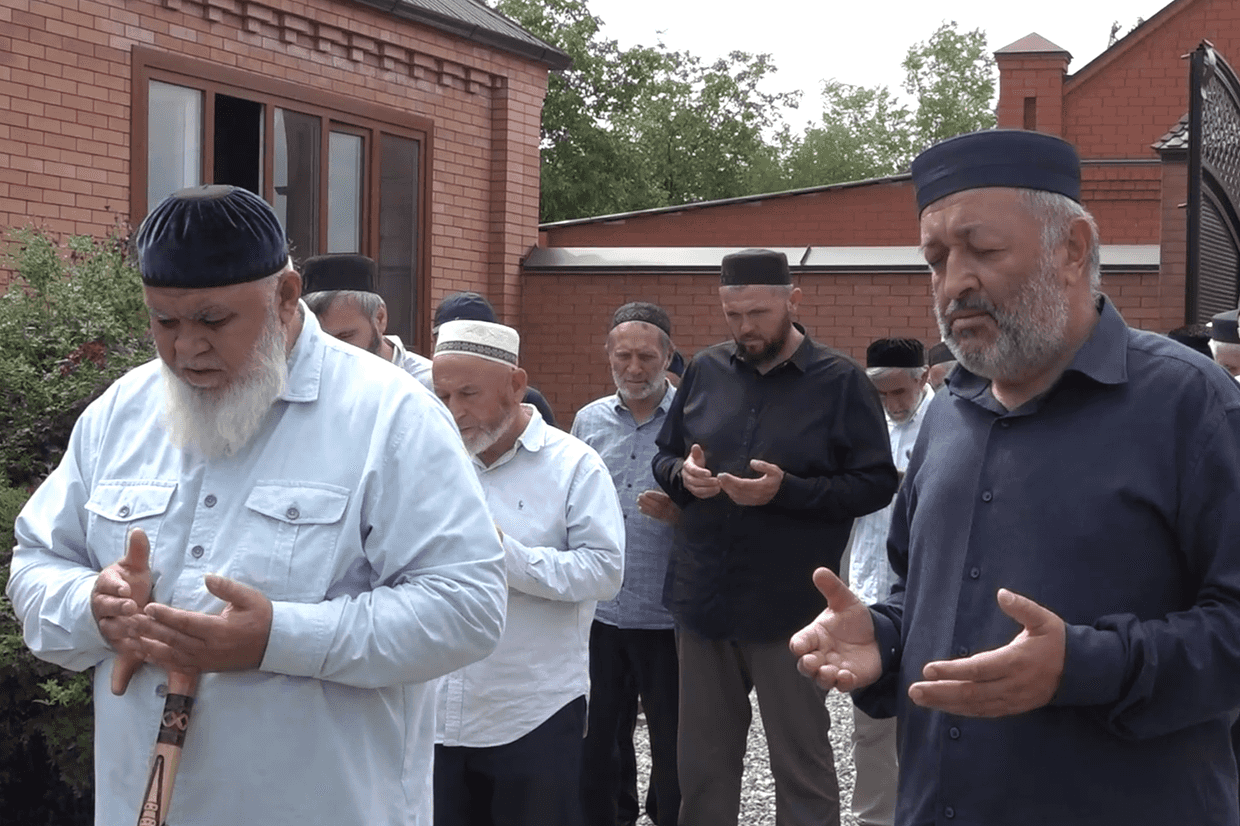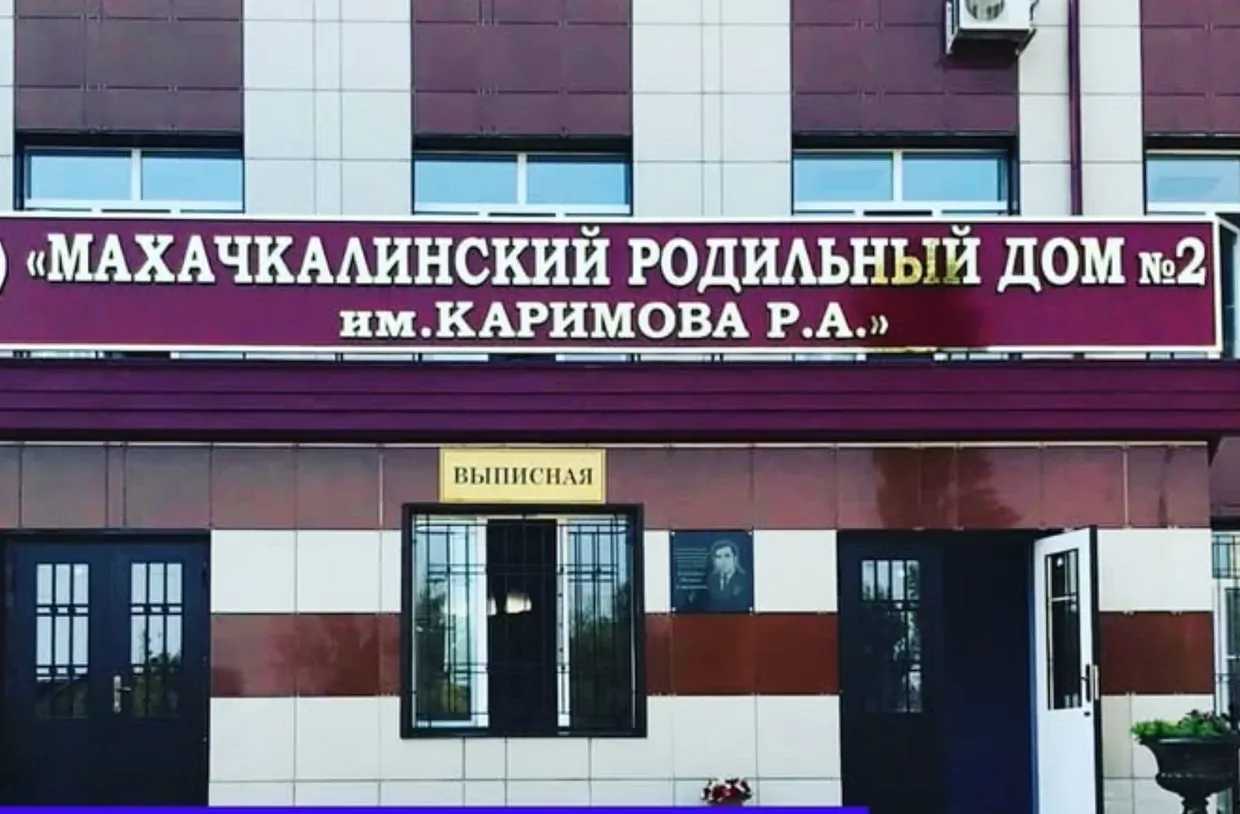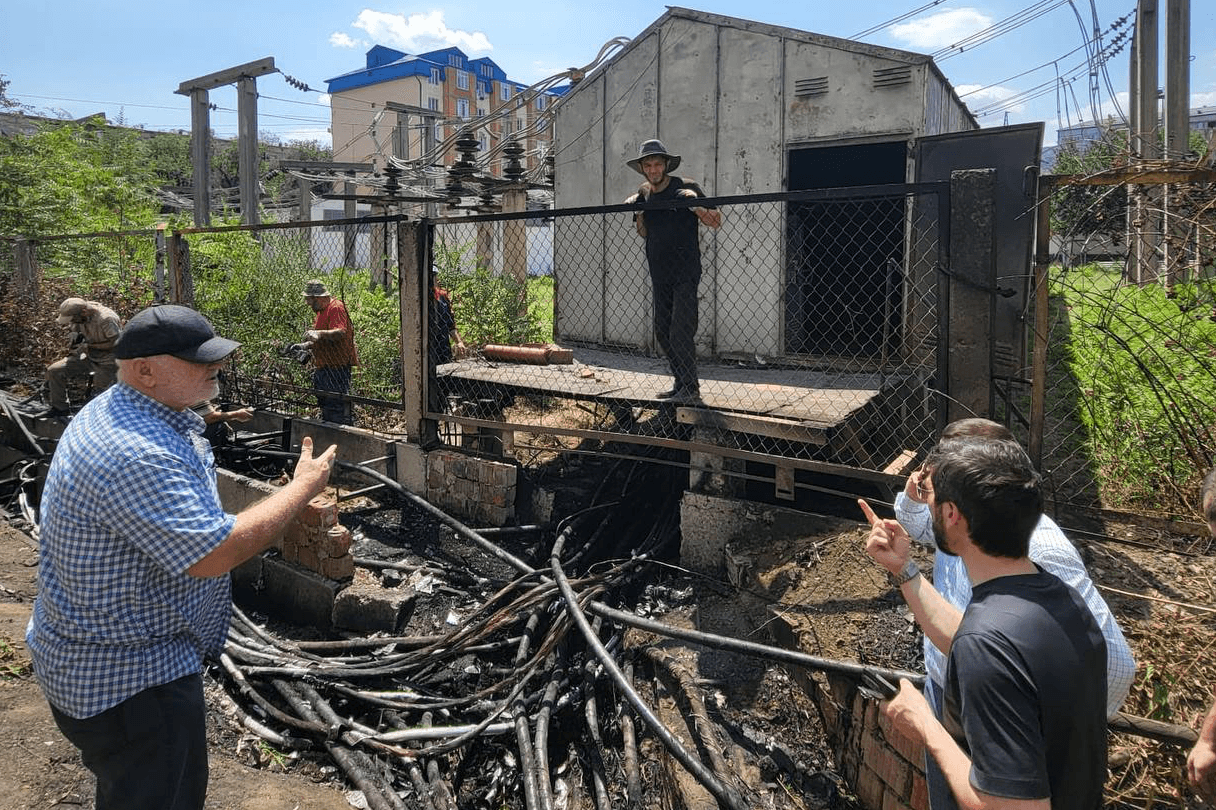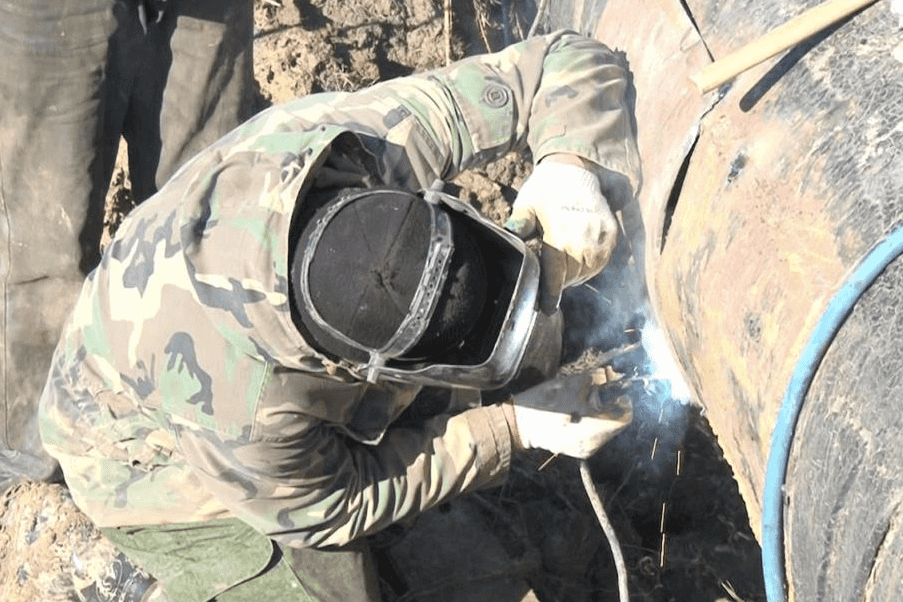
A soldier who served in Russia’s invasion of Ukraine has attempted to stab himself in the neck near a shopping centre in Daghestan’s Makhachkala. The man survived the incident and was hospitalised.
The incident took place on Monday evening near a Sberbank branch in central Makhachkala. According to eyewitnesses, he was heard shouting that he was afraid of being captured by Ukrainian forces.
The Telegram channel Baza identified the man as Rasul, a recently returned participant in the invasion of Ukraine.
Witnesses reported that the man stood in the doorway of the bank holding a knife and began cutting his throat. Bystanders and customers tried to intervene and called emergency services. Prior to the incident, he had asked those nearby to call his son and appeared to be in a state of extreme distress.
The man was taken to the Republican Clinical Hospital.
This is not the first instance of self-harm recorded amongst Russian servicemen who have returned from the war in Ukraine. Human rights organisations and independent media have repeatedly reported a rise in psychological disorders among returning soldiers. According to both Russian and international studies, up to 40% of those who have participated in combat may suffer from post-traumatic stress disorder (PTSD).
In June 2023, the Russian independent media outlet Holod reported that military doctors in Russia often avoid diagnosing PTSD explicitly, opting instead for terms like ‘adjustment disorder’ or ‘asthenic syndrome’. This, in turn, prevents soldiers from receiving adequate medical care or qualifying for disability status.
Since 2023, Russian security services have actively recruited prisoners and ex-convicts, including individuals with violent criminal records, offering them pardons and financial incentives. Upon their return, some of these fighters have gone on to commit serious crimes, including murder.
According to the Russian independent media outlet Verstka, by September last year, at least 242 people had been killed and another 227 severely injured by veterans. In most cases, mental health issues and the lack of a rehabilitation system were cited as contributing factors.
The south of Russia and the North Caucasus have seen a noticeable rise in violent crime. In 2024, at least six regions recorded the highest number of such crimes in 13 years. Russian sociologist Iskander Yasaveev has also pointed to a rise in domestic violence linked to PTSD, alcohol abuse among veterans, increased police violence, and a general rise in crime.
In the North Caucasus — particularly Daghestan, Ingushetia, and Chechnya — numerous cases have been documented in which returning soldiers face serious reintegration challenges, including physical and psychological trauma and social isolation.
Despite the urgent need, there is still no comprehensive veteran rehabilitation programme in these republics. Psychological support is limited to a few centres in larger cities, leaving the majority of returnees without any assistance.
Authorities in Daghestan have not issued any public statement about the incident or the man’s condition. Russia’s Ministry of Defence has traditionally avoided acknowledging the psychological impact of combat, consistently maintaining that morale among troops remains ‘high’.









